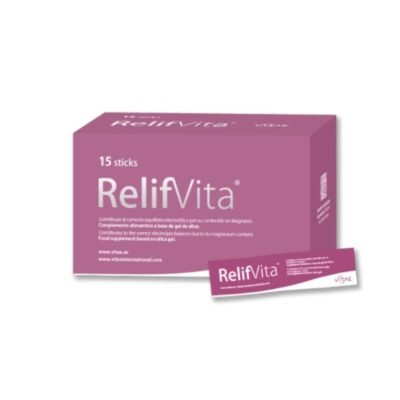Nowadays, we hear a lot about the intestinal microbiota , which is essential for our body to function correctly. The microbial population that exists in the human intestine consists of about 100 trillion bacteria of about 500 to 1,000 different species. And the presence of certain bacteria as part of the intestinal flora is necessary for correct nutrition and body development, as well as to have a good immune system. In the following article we tell you what the microbiota is , what functions it has and how we can improve it.
What is the intestinal microbiota and what is it for?
The microbiota is the set of living microorganisms found in the tissues of the human body. Specifically, the intestinal microbiota are those microorganisms that live in our intestines.
Today, we know that the intestinal microbiota is responsible for cooperating with our defense mechanism against diseases, digesting dietary components and even neurological development. There is a symbiotic relationship between bacteria and our body, that is, we both benefit from the interaction, the human body offers the microbiota a place to live, and it returns it to us by performing the following functions in our body:
- Protective and structural function: this function is the way the intestinal microbiota defends itself , creating a “barrier” and blocking those foreign bacteria that want to implant in our body.
- Metabolic function: bacteria are capable of transforming carbohydrates that we cannot digest into short-chain fatty acids that are usable by the body.
- Function development of the immune system: there are bacteria that manage to influence the immune system. This is called immunomodulation . Through immunomodulation , the intestinal microbiota can regulate the activity of the immune system, for example, alerting it to the arrival of infectious agents.
And, 70% of the components that are part of the immune system are found in the intestine, maintaining a close relationship with the intestinal microbiota . Therefore, any alteration suffered by the microbiota will be reflected in the functioning of the immune system.
Microbiota and inflammatory bowel diseases
Inflammatory bowel disease (IBD) is a chronic disease of unknown cause in which inflammation of the colon and/or small intestine occurs and usually occurs in outbreaks. This disease includes two: Ulcerative colitis and Crohn’s disease , which usually affect young people between 20 and 30 years old, although it is also diagnosed in older people.
- Ulcerative colitis: exclusively affects the most superficial layer of the colon. Depending on the patient, the severity and extent will be one or the other. The main symptoms of ulcerative colitis are: diarrhea, stools with mucus and/or blood, small and numerous stools, frequent urges to evacuate urgently, nocturnal stools, cramps.
- Crohn’s disease: unlike ulcerative colitis, it can affect any section of the digestive tract and the inflammation affects the entire thickness of the intestinal wall. The most common symptoms are abdominal pain, diarrhea, palpable abdominal mass on physical examination, nausea and/or vomiting, weight loss, and in the worst case fever.
Symptoms of an altered intestinal microbiota
The main symptoms that appear due to an imbalance in the intestinal microbiota can be:
- Abdominal swelling or pain
- Excess gases of various types
- Periods of constipation alternating with diarrhea
- Intestinal cramps
- Bad-smelling feces
All of this may be due to different habits that alter our digestive health. Some of the reasons are the following:
- Stress: having a high level of cortisol generates major alterations in the large intestine, which can damage the intestinal flora, even causing inflammation.
- Circadian rhythms: any event that causes you to have time changes will be an imbalance for your intestinal microbiota and will cause it to lose microorganisms and develop others that can cause digestive inflammatory processes.
- Antibiotics: destroy good and bad microorganisms
- Smoking and drinking: these are factors that influence the variety of microorganisms found in our large intestine and that can generate pathogens and lead to alterations in gastrointestinal transit, inflammation or even pain.
- Saturated fats: avoid excess of this type of fat, which we can find in red meat (lamb, beef, beef…), sausages, butter, etc.
Evaluation via intestinal microbiota test
Microbiota test analyzes the microbial DNA of different human samples; fecal microbiota analyzes are normally performed . With all this, it is possible to determine the abundance and taxonomically identify a significant number of microorganisms. In addition , it also serves to know the type of dysbiosis that the patient may have.
How to improve the intestinal microbiota naturally
Many of the symptoms that we have seen caused by the alteration of the intestinal microbiota can be improved through certain changes in habits and following a healthier life, for example:
- Healthy eating: high consumption of fruits, vegetables, legumes and seeds. Fruits and vegetables contain high fiber content and it is better to consume them whole than in juice.
- Physical exercise: exercise increases the diversity of the microbiota and therefore improves the functioning of the metabolism and immune responses.
- Avoid tobacco and alcohol: both cases can cause inflammation in the digestive system, increase intestinal permeability and alter the composition of the microbiota .
- Take probiotics : Probiotics are live microorganisms that are intended to maintain or improve the “good” bacteria we have in the body. Therefore, they will help balance the intestinal microbiota , in order to strengthen the immune system and prevent diseases. You can take them naturally or through food supplements.
At Vitae we care about your health, and unfortunately lately there are many more infections and especially during the summer. That is why, from Vitae, we want to help with one of our products: IntestVita Enzymes
Food supplements for the intestinal microbiota
Vitadigest Enzymes is a food supplement with a combination of three bacterial strains present in the human intestine ( Lactobacillus gasseri , Bifidobacterium bifidum and Bifidobacterium longum ) with four digestive enzymes (lipase, lactase, protease and amylase), which contribute to promoting digestion and regenerating beneficial intestinal flora.
In conclusion, in order to have a good intestinal microbiota , you will have to have good eating habits, eating a wide variety of foods, without exceeding saturated fats. Exercise periodically, stay hydrated a lot, avoid products that are harmful to our body and complement by taking probiotics , either naturally or in supplementation.






